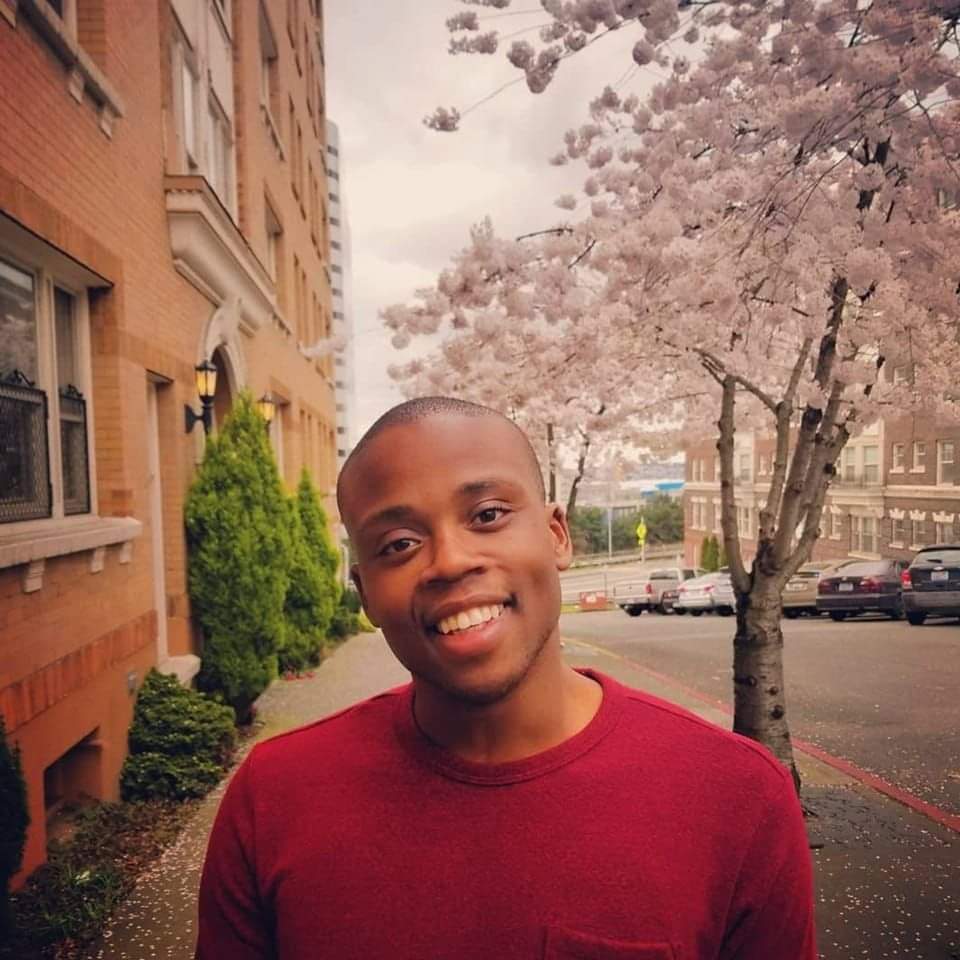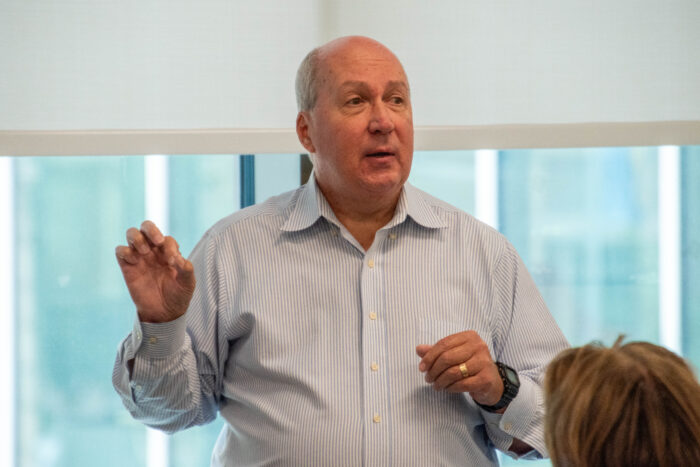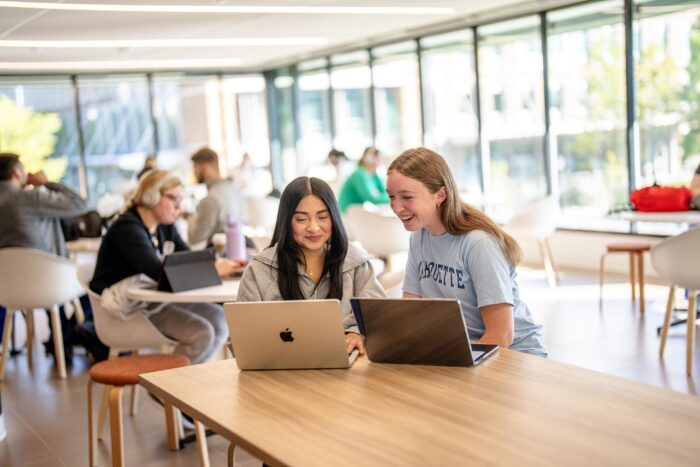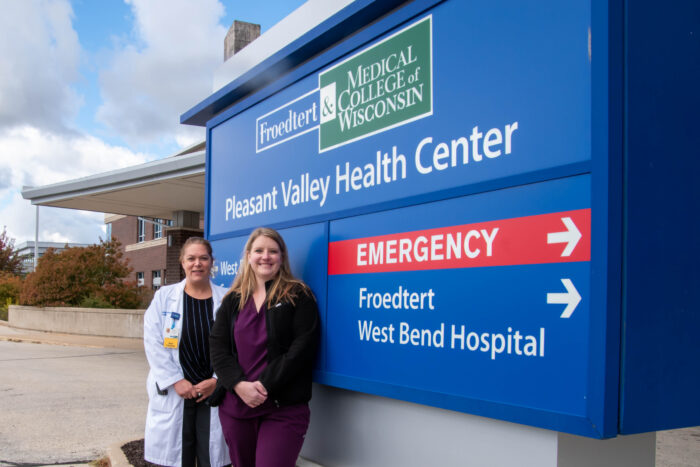
Milwaukee native and Diederich College of Communication alumnus Dr. Joshua-Paul Miles joined the Marquette faculty over a year ago. As a first-generation college student who took part in Marquette’s Educational Opportunity Program, Miles’ time as an undergraduate was extremely involved — he studied corporate communication and Spanish for business professions with a minor in human resources. He also received a master’s in media, technology and society at Northwestern University. His research focuses on interorganizational networks across various domains.
Here in a Q&A, Miles talks more about his background, career and community outreach.
Tell me a little about your background and what led you to being an assistant professor of organizational and corporate communication at Marquette?
Organizations are the most powerful entities in our world. All societies depend on organizations to access various services and resources that support positive individual and community-level outcomes. As an undergrad at Marquette, my areas of study were corporate communication, Spanish for the business professions and human resources. These fields made me very interested in understanding how organizations influence the people within them and those outside of them. My research aims to identify how cross-sector interorganizational networks can effectively address complex problem spaces. Some of these areas include nonprofit-corporate partnerships, community-based coalitions, and systems and technologies of care. My work emphasizes the power of people, technology and collaboration to create successful cross-sector outcomes.
You’ve been in your position for over a year now, what is your favorite thing about working at Marquette?
It is surreal to think I am starting year two as a faculty member! My first year was a blast. Although, as an alum, being a tenure-track faculty member is an entirely different vantage point as an organizational member, and I have learned so much. With that said, my favorite aspect of working at Marquette is my colleagues’ collegiality. We all have a lot to do, and at Marquette, there is a deep understanding that we are human and should create an environment where everyone can thrive. My peers and senior scholars have welcomed me with open arms and have made this transition from my time at Northwestern University smooth.
You were born and raised in Milwaukee. How did growing up in the Sherman Park neighborhood shape the way you see the world around you? How do you use that experience to your benefit today?
Being from Milwaukee and a proud Milwaukee Public Schools graduate, I have been able to experience and observe how all different types of people and communities show up in our world. Growing up I could see how structural and systemic barriers, unfortunately, influence how individuals, communities and families navigate to better their lives. This profound awareness shapes how I see our students and those within our community. Throughout my professional and academic experiences, I have emphasized the assets that our students and communities have over our deficits. Sherman Park and the city of Milwaukee is a vibrant community filled with those who love our city. So, it is incumbent upon me and us to create opportunities where that resilience and vibrancy can shine through for the benefit of us all.
As a former first-generation student, what advice would you give the 18-year-old you or other first-gen students just starting their college career?
That’s a great question. I think one thing I didn’t do enough was to ask for help. First-generation students often feel they cannot ask for help because they have always been expected to be the trailblazers and pioneers in their families and communities. This expectation, although motivating, can hinder their ability to speak up when they need support. So, I advise you to talk to your professors, peers, and other collectives at Marquette when you need personal and educational assistance and in Milwaukee to ensure they finish their time at Marquette strong.
You were involved in quite a few things at Marquette as an undergrad. How did the things you were involved in at Marquette shape your career today?
I was in Marquette University Student Government, McNair Scholars, Lambda Pi Eta (Communication Honor Society) and Sigma Delta Pi (Spanish Honor Society). At the time, I served as a co-chair on President (Michael R.) Lovell’s Task Force for Equity and Inclusion. In all these experiences, I learned how to communicate and lead that centers the people we are trying to support. All these experiences were about collaboration to build consensus and create evidence-based solutions. Now, I use these experiences to inform how I go about what I wish to accomplish and support in my career — specifically, bringing people and organizations together under a common agenda to create social impact.
How do you incorporate activism and outreach through your work? What are you hopeful for in the future?
My research is embedded in communities across the United States. The organizations I work with are not simply participants but rather knowledge co-creators. This means mitigating the nature of the extraction of research and ensuring that those I collaborate with have tangible benefits from the insights we produce. I am most hopeful that my work will continue to drive the conversation of community ownership of resources and data.
What are some of your favorite events or “go-to” places around the city?
Milwaukee is so much fun! This summer, I have re-ignited my love for this city. My favorite go-to places around the town are locally owned coffee spots like Amaranth (Washington Park), Pilcrow (Halyard Park) and Sherman Perk (Sherman Park). I love visiting all our museums, including the Villa Terrace Decorative Arts Museum, Warehouse Art Museum, The Charles Allis House Museum and The Black Holocaust Museum. Also, Chill on the Hill (Bay View) and Jazz in the Park (Cathedral Square) are always a must.


